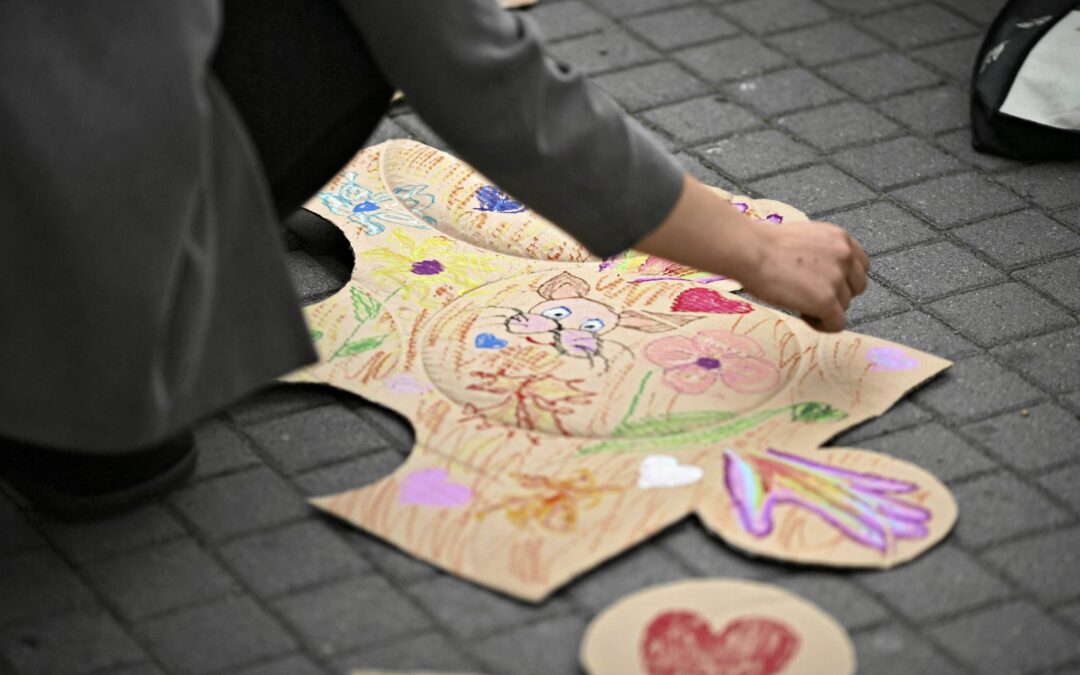Immediate and extraordinary measures are required to improve the provision of mental health care for young people, Poland’s commission for children’s rights has warned in a letter to the health minister.
Mikołaj Pawlak pointed out that the coronavirus pandemic and related restrictions have put even great strain on a system that was already in crisis.
“600,000 young people require immediate mental health support, but they spend months waiting before [being able to] see a doctor,” wrote Pawlak in his appeal to Adam Niedzielski, the health minister.
He added that psychiatric wards for young people are often overcrowded, leading to some patients sleeping in corridors on portable beds and mattresses. He also warned that children brought up in poorer households or with family members struggling with alcoholism can be subjected to attacks and ridicule.
Citing a report by We Give Children Strength (Dajemy Dzieciom Siłę), an NGO, Pawlak noted that half of all teenagers have been victims of peer violence. The report also found that 16% have self-harmed, while 7% of young people admitted to having attempted suicide.
A separate study published this week by the OECD found that Poland has one of the highest suicide rates among young people in the European Union, as well as the lowest number of doctors in proportion to population.
Another report, published in September by UNICEF, ranked Poland 31st among 41 developed countries in an index of child wellbeing. It highlighted particular problems for Polish children in terms of mental health.
The children’s rights commissioner also noted that one “particularly vulnerable group is young people who discover or sense that they are sexually or emotionally attracted to [people of] the same sex as well as young people who are perceived as such”.
These remarks have drawn particular attention, given that Pawlak – who was chosen by the ruling national-conservative Law and Justice (PiS) party – has previously joined the government in criticising what they call “LGBT ideology”.
In September, Pawlak warned that “LGBT ideology is being spread”. He said that it “is not good” and “is not in line with the traditional Polish understanding of patriotism”, reports Do Rzeczy.
He also recently spoke out against sex educators at schools, implying that they target “unstable” children and push them to take sex-change drugs without the knowledge or consent of parents and teachers. He claimed one such instance had occurred in Poznań, but this is denied by local authorities.
The municipal authorities in Poznań have confirmed that there has been no case of a sex education teacher giving sex-change drugs to a child in the city. They have called on the commissioner for children's rights to apologise for making such a claim https://t.co/R1Id86DY0Y
— Notes from Poland 🇵🇱 (@notesfrompoland) September 2, 2020
Overstretched, understaffed
Experts and doctors have repeatedly warned that Poland’s mental health system is underfunded, short-staffed, and relies on outdated methods of treatment. They also point out that the shortage of child psychiatrists is particularly serious.
Earlier this year, the previous health minister announced reforms that would change the entire approach to providing health services to children. One of the main features of the system is a network of 300 clinics that would ensure young patients are first able to meet a psychologist and therapist. Only later, if needed, would they be referred to psychiatrists.
While Pawlak praised the efforts, he also noted that the results of the reform will only be visible in a few years’ time. “We need to act swiftly and undertake extraordinary measures as the crisis of the mental health care system – deepened by the pandemic – will lead to numerous tragedies”.
His letter follows similar recent appeals issued by the Polish Psychiatric Association and We Give Children Strength.
Co drugi nastolatek padł ofiarą przemocy rówieśniczej, 7 proc. myślało o samobójstwie! 600 tys. potrzebuje pilnej pomocy. Wystąpiłem do @MRiPS_RP i @MZ_GOV_PL o nadzwyczajne działania, bo kryzys psychiatrii pogłębiany pandemią doprowadzi do wielu tragedii. https://t.co/TobTOBnZsh
— Rzecznik Praw Dziecka (@RPDPawlak) November 26, 2020
Main image credit: Tomasz Stanczak / Agencja Gazeta

Agnieszka Wądołowska is deputy editor-in-chief of Notes from Poland. She is a member of the European Press Prize’s preparatory committee. She was 2022 Fellow at the Entrepreneurial Journalism Creators Program at City University of New York. In 2024, she graduated from the Advanced Leadership Programme for Top Talents at the Center for Leadership. She has previously contributed to Gazeta Wyborcza, Wysokie Obcasy and Duży Format.




















